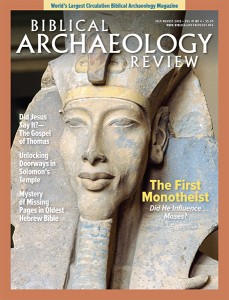Biblical Views: Speaking in the Tongues of Men or Angels?

One of the most interesting, and most debated, narratives in the New Testament is the account in Acts 2, where we hear about the Spirit inspiring a large number of Jesus’ disciples, including Peter, to speak “in other tongues.” In classic Pentecostal theology (i.e., the theology of the Pentecostal churches), this story has been taken to be evidence of the beginning of the phenomenon known as glossolalia, or speaking in angelic tongues (see 1 Corinthians 13:1). The problem with that assumption is that the Greek text of Acts 2 doesn’t in fact support such a view.
The story tells us about a wide variety of Diaspora Jews present in Jerusalem for the one-day festival, and when the disciples of Jesus begin to share the Good News with them, “each one heard them speaking in the native language of each … Parthians, Medes, Elamites, [etc.]” (Acts 2:6‒9). When you hear a phrase like “speaking in other languages,” one naturally has to ask—other than what? What is the point of comparison? In this story, the point of comparison is with the native language of Galileans, namely Aramaic. The audience heard the disciples speaking in human languages other than their own native tongue.
Already a library member? Log in here.
Institution user? Log in with your IP address.

